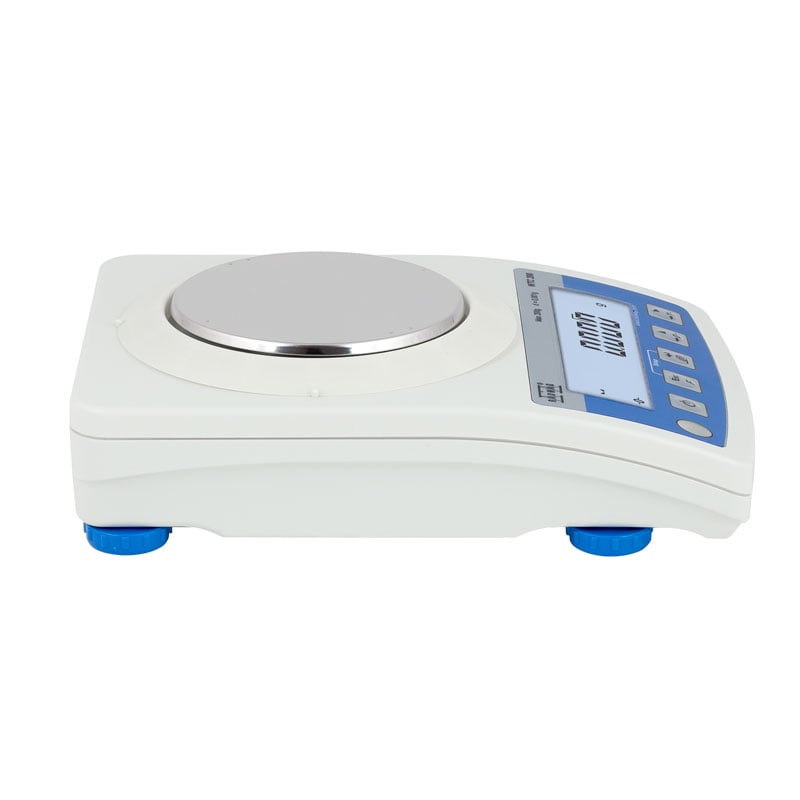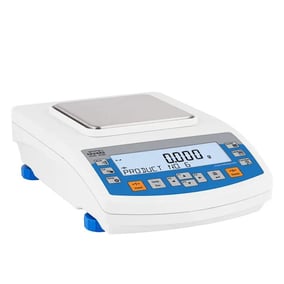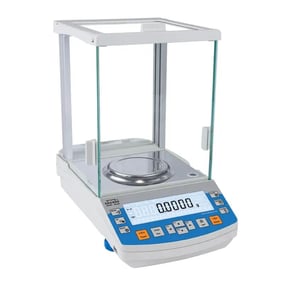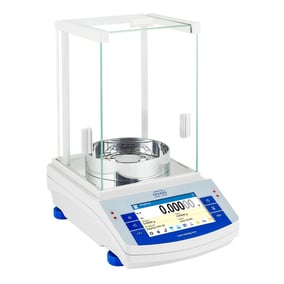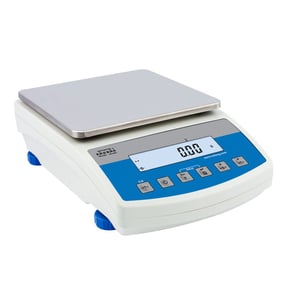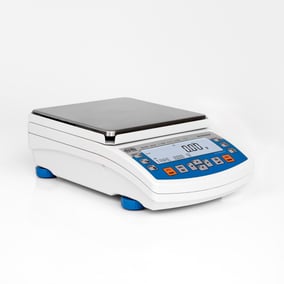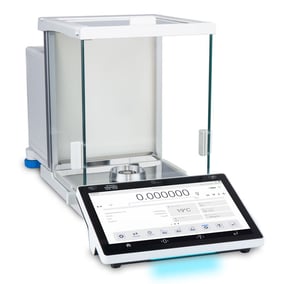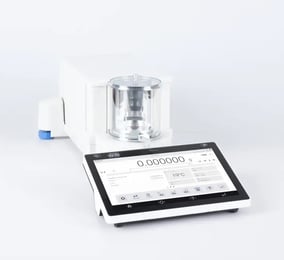WTC Series Precision Balance WTC
Overview
The WTC balance uses a high-quality load cell technology, which provides precise and repeatable measurements even in tough industrial environments. The load cell is designed to be resistant to mechanical shocks and overloads, ensuring the balance can withstand heavy usage in industrial settings.
The WTC balance has a robust construction that is made from stainless steel, making it resistant to corrosion and easy to clean. The display unit is housed in a separate stainless steel housing, which can be easily mounted on a wall or placed on a desk.
The balance also features a large, backlit LCD display that shows weight readings in a variety of units, including grams, kilograms, pounds, and ounces. Additionally, the WTC balance can be connected to a computer or printer through an RS232 port, allowing for easy data transfer and record keeping.
The Radwag WTC balance is a reliable and accurate weighing device that is well-suited for industrial settings where accuracy and precision are critical. Its robust design and load cell technology make it ideal for use in applications such as production, quality control, and inventory management.
Technical Data
-
BrandRadwag
-
Capacity200g - 3000g
-
Electrical12V DC
-
Readability0.001 g - 0.1 g
Support
At Thermoline, we strive to supply helpful customer support to ensure that you get the most out of our products. We are committed to providing whatever support our customers need, wherever they are in the world. If you can't find your solution in the below FAQs or Knowledge Base, please contact our friendly support team.
- What is laboratory balance?
A laboratory balance is a precision instrument used to measure the mass of an object or sample. It is designed for use in laboratory settings and is typically more accurate and precise than a standard scale.
A laboratory balance typically consists of a weighing platform, a load cell to measure the weight of the sample, and a digital display that shows the result. The load cell converts the force of gravity acting on the sample into an electrical signal, which is then displayed on the digital display.
- What is the difference between a scale and a balance?
While scales and balances are both used as weighing devices, their intended purposes vary slightly.
A scale is used to measure weight (weight = the force of gravity on an object on the scale), whereas a balance is used to measure mass. (mass = the amount of matter in an object). A scale is a general-purpose measuring instrument that gives an estimate of the weight of an object. They typically use spring mechanisms to measure weight and have a lower precision compared to laboratory balances.
A balance, on the other hand, is a highly precise instrument used in laboratory settings. Balances use load cells to measure weight and provide a much higher level of accuracy compared to scales. The readout on a balance is usually digital, and the results can be displayed in various units of measurement, including grams, kilograms, and ounces.
- What are the appropriate conditions for a laboratory balance?
- You should first install the balance in a workroom free of vibrations and shakes and where there is no air draft or dust. You want to ensure that the ambient temperature is between +15°C and +35°C while ensuring that the relative humidity is not above 80%. Place the balance either on a robust-design table or on a wall bracket that is both distant from heat sources and insusceptible to vibrations.
- What is the difference between a precision balance and an analytical balance?
Precision balances and analytical balances are both types of laboratory balances, but they differ in their level of precision and the types of applications for which they are used.
A precision balance is a type of laboratory balance that provides accurate measurements within a range of ±0.1 to ±0.01 grams. Precision balances are typically used for routine weighing tasks, such as determining the mass of chemicals for routine laboratory experiments, or for checking the weight of small parts in industrial settings.
An analytical balance, on the other hand, is a highly precise type of laboratory balance that provides accurate measurements within a range of ±0.0001 grams. Analytical balances are used for more demanding applications, such as determining the mass of samples for highly accurate chemical analysis, or for weighing minute quantities of substances in medical and pharmaceutical research.

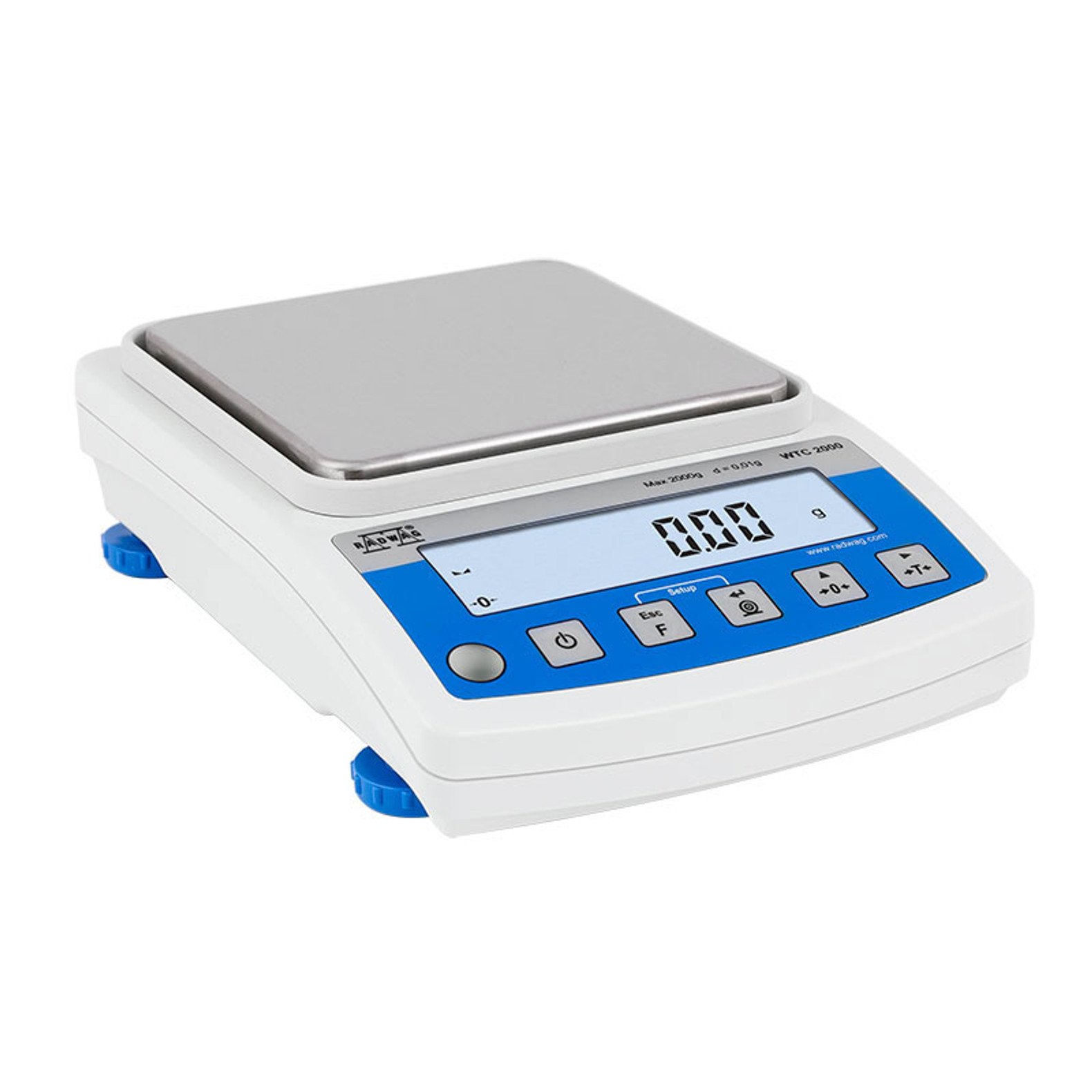
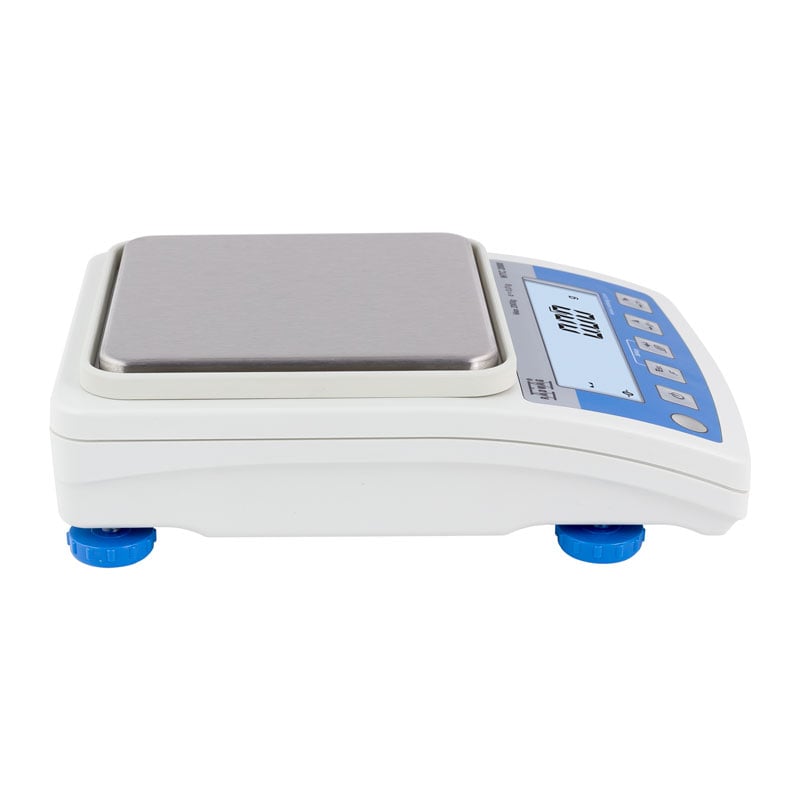
.jpg)
